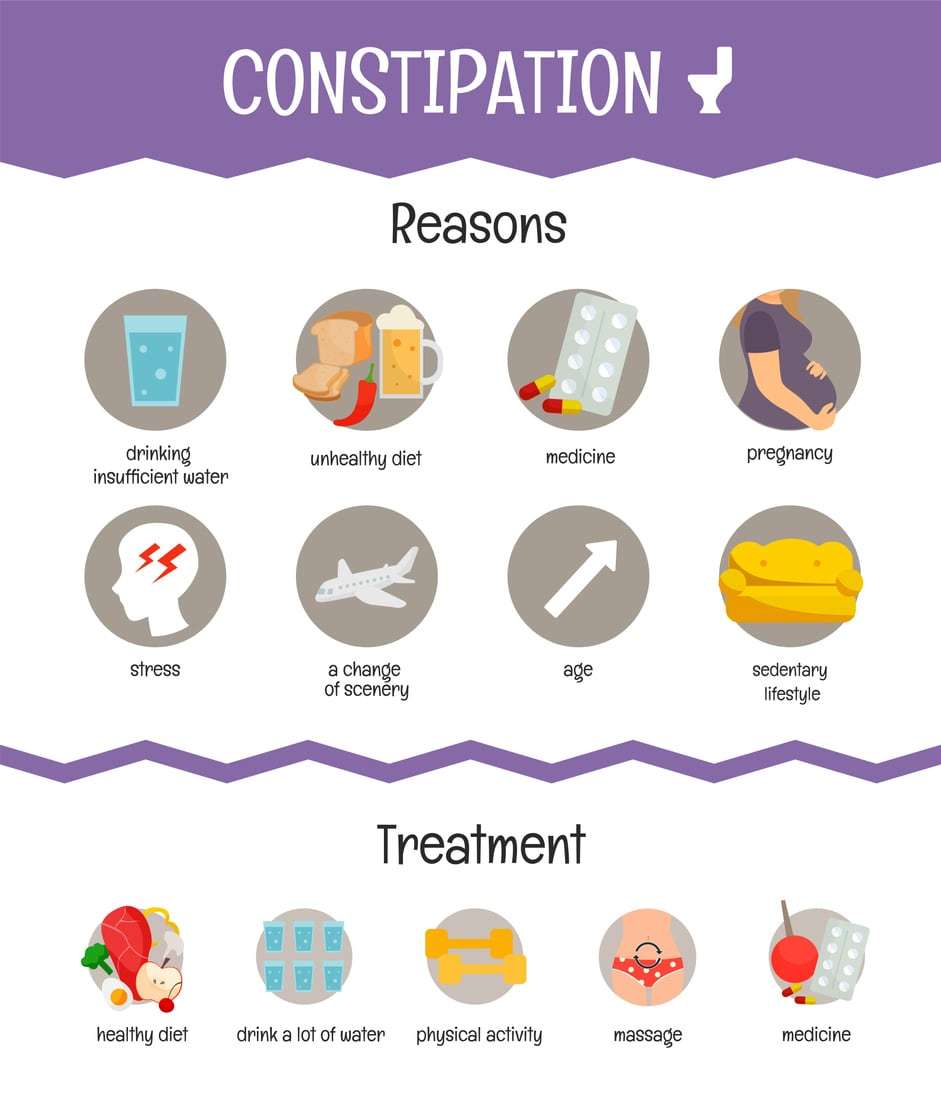
What Causes Constipation?
What causes constipation? If you are like most people, you know how uncomfortable constipation can be. It happens to almost everyone from time to time. Constipation makes you feel miserable and keeps you from doing things you would normally enjoy. It’s hard to plan your life around your bathroom activities. You either strain to have a bowel movement or you go for days without having one at all.
The causes of constipation vary. The most common cause of constipation is a lack of water and fiber in the diet. Often, once you add more high fiber foods back into your diet and increase your water intake, the problem goes away. Sometimes people take over-the-counter laxatives to get relief from constipation.
In the past, experts advised against long-term laxative use. The formulas used were believed to cause damage to nerve cells and made it difficult for the colon to contract. Modern laxatives have greatly reduced the likelihood of this happening today, but should be used sparingly unless recommended by a doctor. Still, there are some good reasons to try increasing fiber and water intake before giving laxatives a try.

What Is Chronic Constipation?
Constipation is typically considered having fewer than three bowel movements in a week. Chronic constipation means that your symptoms persist for several months. Once this happens, it’s more important than ever to determine the cause of constipation. Although simple lifestyle changes can eliminate some cases of constipation, it isn’t always enough to get permanent relief. Sometimes, constipation is a symptom of a serious condition.
Common Causes of Constipation
Constipation is a digestive issue. Your digestive tract removes nutrients and fluid from the food you chew and then excretes what is left as waste from your body. Not getting enough fiber and water is one reason your digestion changes. There are others that might be to blame, too.
If you experience constipation after going on vacation, it’s probably because your eating habits have changed. Sometimes we indulge in foods while we are away that we rarely eat at home. Some foods that cause constipation include dairy products, white bread, caffeine, and chocolate. Fast food also increases the chances of getting constipation.
If you’ve changed your diet to help you lose weight or due to a medical condition, that could be the problem. For example, people who eat a low-carbohydrate, high-protein diet often get constipated from eating lots of meat and cheese while limiting the amount of high-fiber vegetables they need for good digestion.
Medication and Diet May Cause Constipation
Some types of medication can also cause constipation. Opioids, a class of drugs used to treat chronic pain, are one example. Antispasmodics, antidepressants, iron supplements, and calcium-channel blockers are some others. If you’ve recently started taking any over-the-counter or prescription drug, ask the pharmacist or your GI doctor if it can cause constipation. Your doctor can advise you on how to manage constipation symptoms. Don’t stop taking your medication without your doctor’s approval.
Diet and exercise go hand-in-hand for achieving and maintaining a healthy weight. You also need both to keep your digestive tract working smoothly. Staying active helps keep the abdominal wall muscles and the diaphragm strong. The colon responds well to exercise, increasing its ability to make your bowel movements regular.
Additional Causes of Constipation
Do you always go when you get the urge? Ignoring the need to go to the bathroom frequently can lead to constipation. If you make a habit of holding it in, you may stop feeling the urge to go altogether.
There are also some more serious causes of constipation including irritable bowel syndrome (IBS) and colon cancer. Some people with IBS have predominant constipation while others alternate between constipation and diarrhea. This condition also causes symptoms of bloating, cramping, and excessive gas. Make sure you tell your GI doctor all of your symptoms for an accurate diagnosis.
Some of the same symptoms experienced by people with IBS also occur with colon cancer. Other symptoms of colon cancer include abdominal pain and dark or bright red blood in your stool. You should never ignore any of these symptoms. Detecting colon cancer early increases your chances of successful treatment.
Constipation can be a temporary nuisance or an ongoing symptom of something more serious. If your condition persists, contact Digestive Health Partners for an appointment with an experienced GI specialist today. It’s the only way to know for sure what is causing your chronic constipation. Our experienced gastroenterologists are here to help with all of your digestive needs.